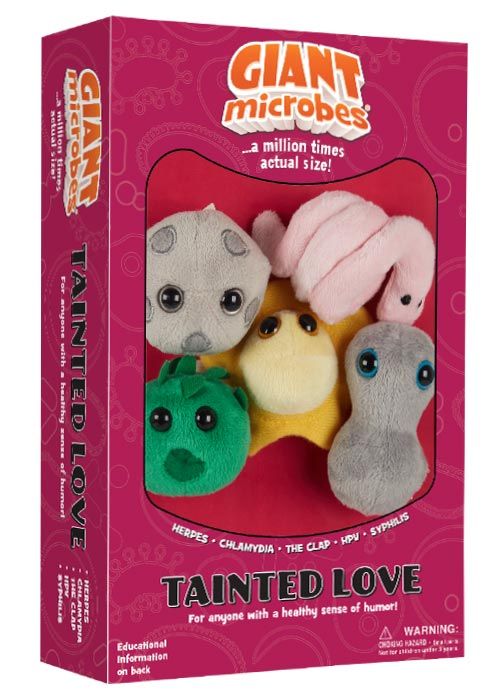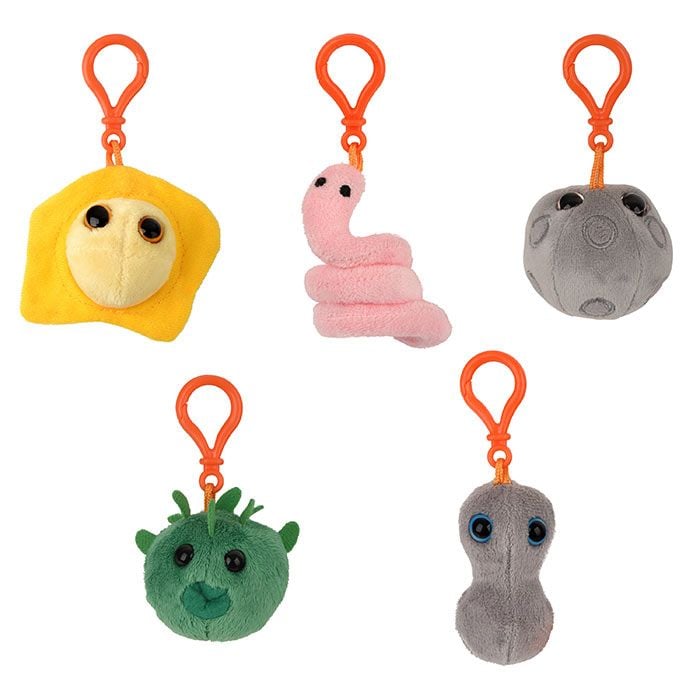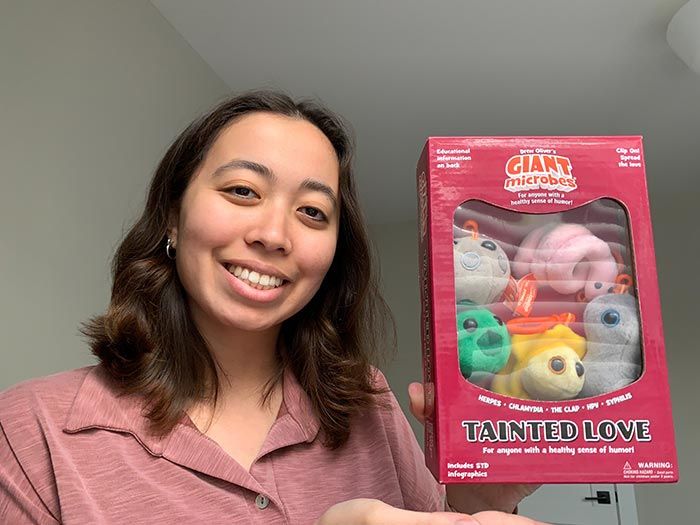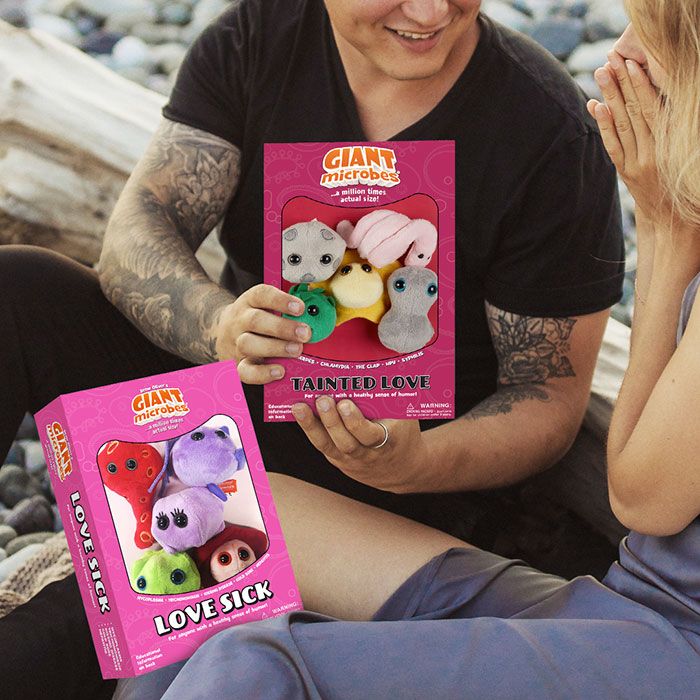Tainted Love
These Tainted Love microbes may take your tears and that’s not nearly all. They’ll brighten your day if any tainted love does come your way!
This educational box set includes mini plush representations of Herpes, Chlamydia, Gonorrhea, HPV and Syphilis. Educational information is on the back of the box.Spark discussion about sexual health. Memorable hands-on learning tool for students, nurses, doctors, patients, scientists, and health educators. Fun unique gift for friends, young adults, and anyone with a healthy sense of humor!
Clip them onto your backpack, keys or anywhere! Each microbe measures 3" and includes a key chain clip.
Product Details
Additional Information
| Sizes | Giantmicrobes are based on actual microbes, cells, organisms and other critters, only 1,000,000 times actual size! Gigantic (GG) 16-24" XL (XL) 10-15" Original (PD) 5-8" Keychain (KC) 2-4" with clip |
|---|---|
| Materials | Plush from all new materials. Stuffed with polyester fiber fill. Surface washable: sponge with water & soap, air dry. |
| Packaging | Each plush microbe includes a printed card with fun, educational and fascinating facts about the actual microbe or cell. |
| Safety | Every product meets or exceeds U.S. and European standards for safety. For ages 3 and up. |
All about Tainted Love
Herpes
Herpes is one of the great-granddaddies of STDs. The word “herpes” (Greek for “creep”) was used by Hippocrates himself 2,500 years ago to describe lesions that appeared to creep along the skin as they spread.
Outbreaks occur in only about one third of cases, depending on the strength of the immune system and the length of infection (outbreaks decrease with time).
Chlamydia
Chlamydia is perhaps the most common of all STDs, though it is less renowned than many others. In nearly three quarters of women (and half of men) chlamydia produces no symptoms at all.
Left untreated, it causes permanent damage to the female reproductive system, and in some cases infertility. Fortunately, affordable and reliable testing is available for chlamydia – and it is highly responsive to antibiotics.
Clap (Gonorrhea)
The clap, or gonorrhea, is one of the most common sexually transmitted diseases. (The word "clap" comes from "clapier," the old French word for brothel.)
Gonorrhea is generally contracted by young adults, as promiscuity is the primary risk factor. Though most cases of the clap can be treated with antibiotics, hold the applause: resistant strains are beginning to emerge.
HPV
Human papillomavirus (HPV) is a virus that includes more than 100 different strains or types. “Low risk” HPV types can cause common warts. "High risk" HPV is more dangerous and can ultimately lead to cervical (and other) cancers.
Fortunately, there are a variety of treatments and procedures for managing HPV – and a vaccine is also available which provides protection against some of the most high-risk strains.
Pox (Syphilis)
The Great Pox may have originated in the New World, but it burst onto the historical scene in a 1494 epidemic. It was called the French disease (by the Italians), the Italian disease (by the French), the Spanish disease, the Polish disease, the Russian disease, and so on.
And the name Syphilis? It comes from the name of a shepherd cursed by Apollo in a 1530 poem by Girolamo Fracastoro.














